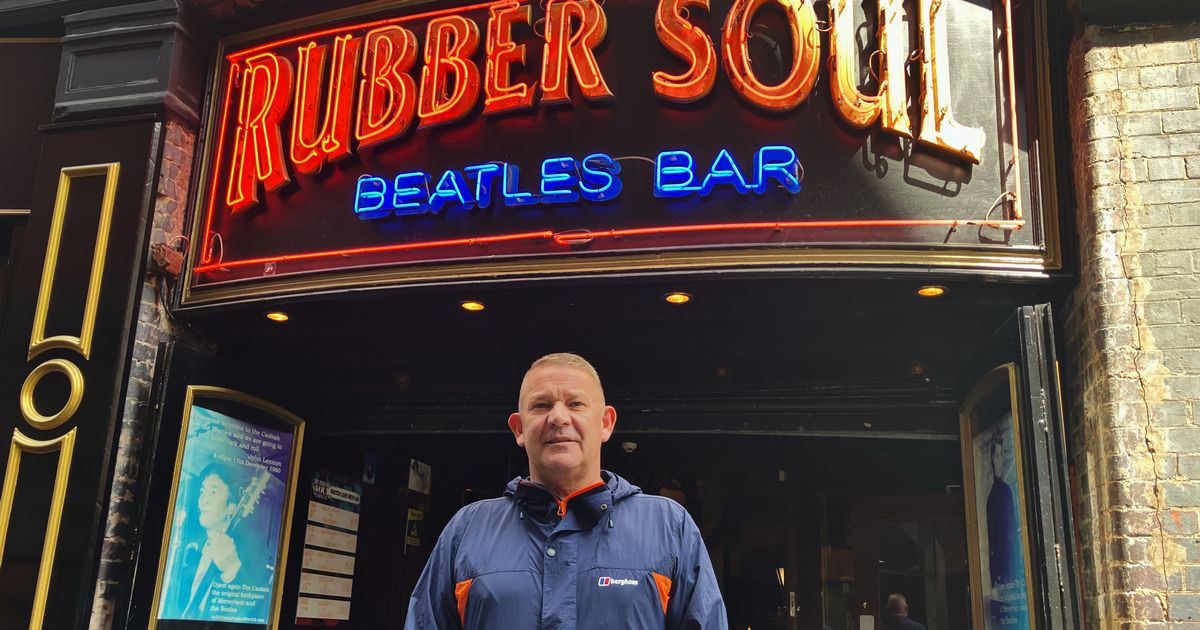The world-famous street has lived many lives and served different purposes over the years. However, questions remain about what it actually is today, and what it should be.
13:42, 20 Jul 2025Updated 13:45, 20 Jul 2025
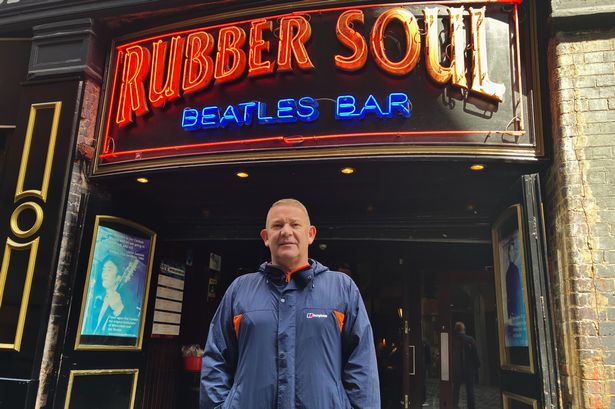 Jimmy Boland, Operations Manager at JSM, which owns several Mathew Street bars(Image: Conaill Corner/Liverpool Echo)
Jimmy Boland, Operations Manager at JSM, which owns several Mathew Street bars(Image: Conaill Corner/Liverpool Echo)
It’s one of Liverpool’s most famous streets, drawing tourists from around the globe thanks to its historic cultural significance. Mathew Street is most notable for being the location of the Cavern Club, where The Beatles played on numerous occasions in their early years. The Fab Four’s influence has left a huge mark on the so-called “Cavern Quarter” area of the city centre – of which Mathew Street is the main artery – with several bars there named after the band’s albums, Beatles-themed merchandise on sale, and statues of John Lennon, Brian Epstein and Cilla Black dotted around the place.
The Beatles weren’t the only band to come out of Mathew Street. For four years, from 1976, it was also home to the influential music club Eric’s which – despite its short life – hosted some of the biggest punk and post-punk bands in the country, reviving the city’s musical scene for a generation.
Today, Mathew Street is one of Liverpool’s most popular nightlife destinations, with stag and hen parties visiting from around the country. The area also brings in tourists from across the world, who are attracted to its musical links.
The street has lived many lives and served different purposes over the years. However, questions remain about what it actually is today, and what it should be.
‘It’s a national brand’
According to Liverpool BID Company’s Leanne Wilkes and Shaun Holland, Mathew Street plays a vital role in the city’s visitor economy and identity.
Shaun told the ECHO: “Liverpool city centre is very vibrant. It has unique features within it and Mathew Street is one of those. It’s a national brand that attracts people from around the world. We have cruise ships which attend the city, which creates a lot of activity. Every one of those people want to see where The Beatles started.”
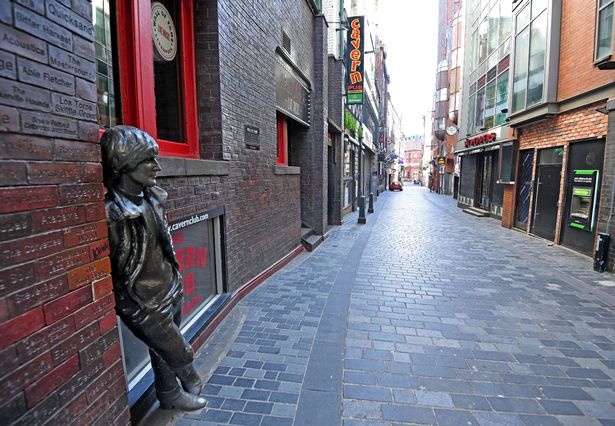 The John Lennon statue on Mathew Street(Image: Liverpool ECHO)
The John Lennon statue on Mathew Street(Image: Liverpool ECHO)
The BID Company, which looks after public and business relations in the city centre, sees Mathew Street as more than just a nightlife strip. Shaun added: “It’s cultural as well. Look at everything on offer, in and around it. Yes, there’s some bars, but there’s also restaurants. There’s a whole myriad of different types of businesses from retail, commerce, and leisure. It’s a 24/7 location.”
They say they work closely with local businesses to maintain the street and keep it relevant. Shaun said: “Preservation is really key. We liaise directly with the landlords and they consult with us… The changes aren’t significant, in one go. They’re very slow-moving and very minor, but we do as much as we can to protect this particular area.”
For the BID team, the Beatles connection is more than just nostalgia: “It’s been around for 60-odd years and it’s going to be here for another 60 years. Of course, we have to embrace the future, musically, but The Beatles is the main attraction here, and long may it continue.”
‘It’s not Benidorm’
One of the biggest players shaping today’s Mathew Street is JSM, a company which owns a number of its most prominent bars – from Eric’s to SGT Peppers, Rubber Soul to McCooley’s. Operations Manager Jimmy Boland has been working on the street for more than a decade.
He said: “We try to give people something different, and a bit of variety. Our bars are very diverse with different types of live music… There’s something for everybody who comes to the street. That’s what we look to do and I think we’ve pulled it off – it’s what JSM is about.”
Jimmy’s keen to push back on the perception that the street is just for nightlife, adding: “It’s not just a stag and hen, it’s not Benidorm. We offer a lot more than that. During the daytime, a lot of ships come in and there’s a lot of tourists. We try to cater for them too with cheap offers, cocktail menus and things like that.”
JSM has expanded its footprint across the street over the last 10 years – but Jimmy says that investment has gone beyond opening venues. He said: “The investment that JSM has put in is unbelievable, from not just opening the bars, but tidying the streets up – I think, as a whole, we do more than the council and the BID put together.”
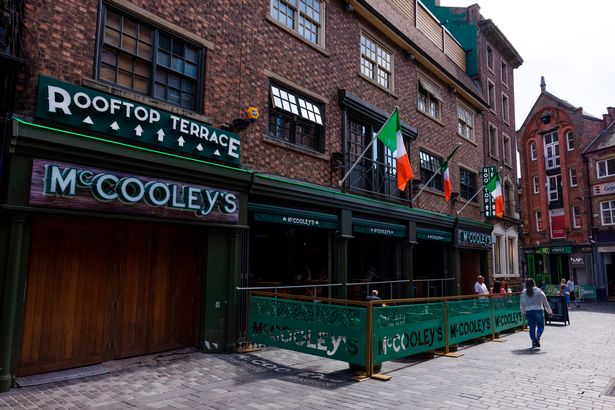 McCooley’s is one of the Mathew Street bars which JSM owns(Image: Liverpool Echo)
McCooley’s is one of the Mathew Street bars which JSM owns(Image: Liverpool Echo)
Some say that Mathew Street has become too commercial, repetitive or drink-focused. Responding to this criticism, Jimmy said: “Everybody is entitled to their opinion. You’re not going to please everybody. People can cast a shadow on Mathew Street, who probably haven’t come here in a couple of years.
“But, I think that 99% of the people who come here leave here saying they’ve had a great time. There’s a very safe vibe on Mathew Street. All of the bars are well secured and there’s very little trouble here, compared to other parts of town.”
With regard to Eric’s – a venue he now oversees, which once defined Liverpool’s post-punk scene – Jimmy says live music is still a big part of what they do. He added: “We put on over 100 hours of live music – bands, solo artists. There’s always opportunities for up-and-coming artists, and we encourage it.”
JSM recently added a glass ceiling to part of Eric’s so visitors can see into the old Fruit Exchange – a small nod to the street’s past. Jimmy said: “We’ve put a glass window in the ceiling so people can have a look at it.”
As for Mathew Street’s Beatles theme, Jimmy says: “That’ll never go. They’re too big. I don’t get it myself, to be honest. It’s mad, the amount of revenue The Beatles bring.”
Looking ahead, his vision is clear: “I see it only getting busier and better.”
‘Trading off past glories’
But for Ken Testi – who co-founded the original Eric’s club along with Roger Eagle and Pete Fulwell – today’s Mathew Street is a far cry from the scene he helped build.
Speaking about the street in the 1970s, he said: “The crucial part is that it was very cheap. It’s an important part of changing times in cities because when property is cheap, interesting things happen.
“It was a place for ideas to develop, and that can only happen when it’s cheap. If you’re looking for a place to exchange ideas these days, you’re paying £7 per pint for the privilege. It’s just not viable for the culturally aware but relatively impoverished, who many of the best ideas come from – and students, of course.”
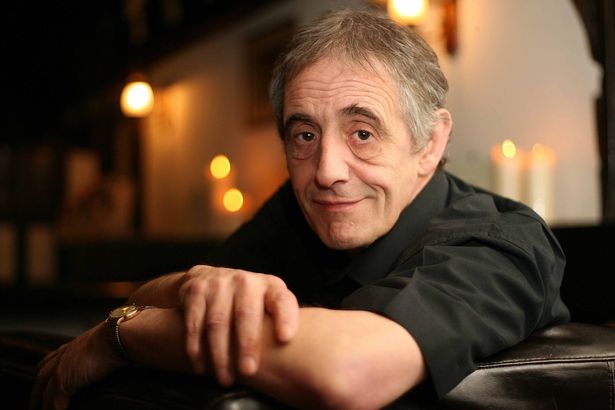 Ken Testi, who co-founded Eric’s(Image: VICTORIA TETLEY)
Ken Testi, who co-founded Eric’s(Image: VICTORIA TETLEY)
Ken remembers Mathew Street as a place where creativity and chaos mixed freely – a place where music, theatre and radical thought could take root. He added: “It was a hive of ideas and a really interesting place to be. It was great to have the feel of creativity bursting out of the brickwork, everywhere. It was marvellous.”
That, he says, has been lost: “The people who inhabited Mathew Street then were looking for something quite different to what the people who inhabit Mathew Street now are looking for. It’s entirely alcohol-fuelled, as far as I can make out.”
While he acknowledges the economic importance of the street as it is, he’s critical of its current cultural contribution, saying: “It trades off [its past], but it doesn’t contribute to it… It’s not easy to trade with culture, but it’s a lot easier to trade with alcohol.”
If given a free hand to reshape the street, he’d want it to be “more culturally contributory,” but admits that today’s property values make that difficult. He said: “Maybe we just have to live with it. There are behaviours there which are, frankly, quite embarrassing: hen parties, stag parties… vomiting and urinating in the street.”
One proposal, Ken said, was for a commemorative plaque in the pavement honouring him and his former collaborators, Roger Eagle and Pete Fulwell. He laughed: “I said, ‘Absolutely not!’ I don’t want to be urinated on and vomited on. And Pete and Roger are both gone, so someone’s got to stand up for them.”
Responding to Ken’s criticism of Mathew Street, Jimmy Boland said: “I do appreciate what Ken has done for the music on the street and in the city in general, but time does move on and what JSM has done in the last 10 years with investments has been phenomenal.
“The past will always be a part of the street and should never be forgotten but the present is where were at now and JSM has been instrumental in bringing tourists back to the street, not just [during the] night time but day time also. Mathew Street bars trade for the present and we look forward to what the future brings.”
In response to Jimmy’s view that JSM are doing more than the council to keep Mathew Street tidy, a Liverpool City Council spokesperson said: “Over the past couple of years, we have invested more in environmental services and currently spend over £12m on street cleansing each year.
“As part of this work, Mathew Street receives a deep wash each week and is cleansed every morning which reflects its significance to the city’s tourist offer. Additionally, our teams are assigned programmed cleansing work throughout the day, including litter picking throughout the city centre. This work includes Mathew Street and is based on varying locational demands.
“We liaise regularly with JSM and appreciate the work they do to keep the areas outside of their bars clean and tidy.”
Mathew Street remains a magnet. For Beatles fans, party tourists, music pilgrims and bar crawlers alike, it’s an unmissable stop – loud, lively, and loaded with history.
But whether it becomes more than a stage for the past – or doubles down on the nostalgia and the nightlife – may come down to whose voices shape its future.
